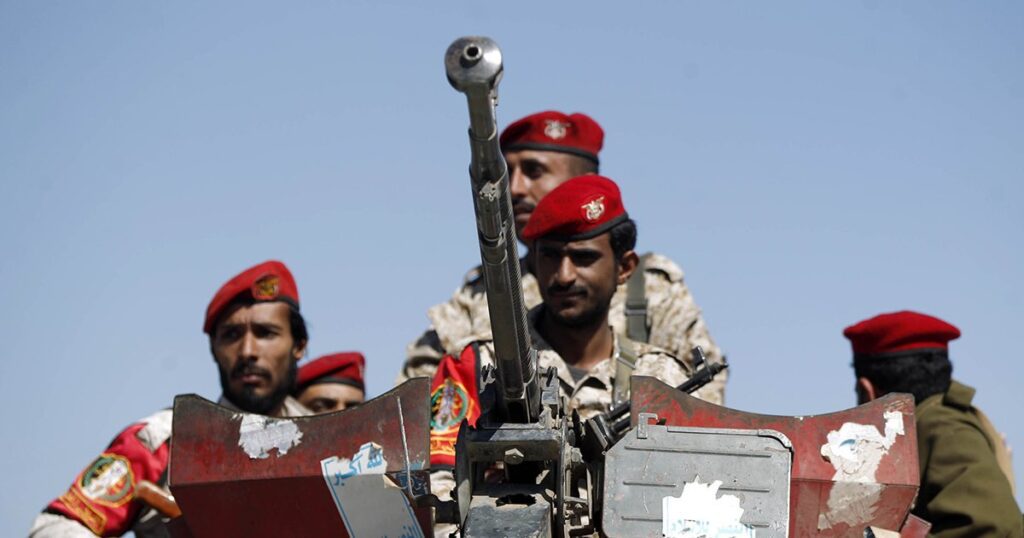The Yemeni Civil War is a complex conflict that began in 2015 as a power struggle between the Yemeni government and Houthi rebels. It has since escalated into a full-blown war, with various regional and global powers getting involved. This proxy battle has significant global ramifications, including a humanitarian crisis with millions of people on the brink of starvation. The conflict has also contributed to a shift in the regional balance of power, with Saudi Arabia and Iran directly embroiled in the war. Additionally, the war has created a breeding ground for militant groups and strained international relations. Efforts must be made to find a peaceful resolution and mitigate the global consequences of this conflict.
The Yemeni Civil War: A Proxy Battle with Global Ramifications
Introduction
The Yemeni Civil War is a complex conflict that has been raging in Yemen since 2015. What began as a power struggle between the internationally-recognized Yemeni government and the Houthi rebels quickly escalated into a full-blown war, with various regional and global powers getting involved. The repercussions of this protracted conflict have extended far beyond Yemen’s borders, making it a proxy battle with significant global ramifications.
Historical Background
The roots of the Yemeni Civil War can be traced back to Yemen’s political instability following the Arab Spring in 2011. The revolution that ousted longtime authoritarian President Ali Abdullah Saleh triggered a power vacuum, allowing various factions and militant groups to vie for control. In 2014, the Houthi rebels, who belong to the Zaidi sect of Shia Islam and had long felt marginalized by the government, seized control of Yemen’s capital, Sanaa, and eventually forced President Abdrabbuh Mansur Hadi into exile.
Regional Power Struggles
As the conflict escalated, regional powers began to take sides, turning the Yemeni Civil War into a proxy battle. Saudi Arabia and the United Arab Emirates (UAE) aligned themselves with the internationally-recognized Yemeni government, providing military support and airstrikes against the Houthis. On the other hand, Iran saw an opportunity to gain influence in the region and started supporting the Houthi rebels, providing them with financial aid, weapons, and military advisors.
Global Ramifications
The Yemeni Civil War has direct and indirect global ramifications that impact various aspects of international politics and security.
Humanitarian Crisis
One of the most devastating consequences of the Yemeni Civil War is the humanitarian crisis that has unfolded in the country. The war has resulted in the displacement of millions of people, civilian casualties, and widespread food and medical shortages. According to the United Nations, Yemen is facing the world’s worst humanitarian crisis, with millions of people on the brink of starvation, and an outbreak of diseases such as cholera adding to the misery.
Regional Balance of Power
The conflict in Yemen has contributed to a shift in the regional balance of power. Saudi Arabia and Iran, already engaged in a long-standing rivalry, have become directly embroiled in the Yemeni Civil War. This proxy battle serves as a manifestation of their broader struggle for domination in the Middle East. The outcome of the war could potentially tip the regional balance of power in favor of one of these regional powers.
Security Threats
The Yemeni Civil War has created a breeding ground for various militant groups to thrive, including al-Qaeda in the Arabian Peninsula (AQAP) and the Islamic State (IS). These groups have taken advantage of the chaos and weak governance to expand their operations, posing a significant security threat not only to Yemen but also to the broader region and beyond. The international community is concerned about the potential spillover of terrorism emanating from Yemen.
International Relations
The involvement of global powers in the Yemeni Civil War has strained international relations and alliances. The conflict has exacerbated tensions between Saudi Arabia and Iran, as well as between the United States and Iran. The United States has supported the Saudi-led coalition in its military campaign against the Houthis, while also expressing concerns about civilian casualties and the humanitarian crisis. This multi-faceted involvement has complicated diplomatic efforts to find a resolution to the conflict.
Conclusion
The Yemeni Civil War has evolved into a proxy battle with profound global ramifications. The regional power struggles, humanitarian crisis, security threats, and strain on international relations all highlight the complexity and interconnectedness of this conflict. It is crucial for the international community to come together and work towards a peaceful resolution to the Yemeni Civil War, not only to alleviate the suffering of the Yemeni people but also to mitigate the broader global consequences of this proxy battle.
